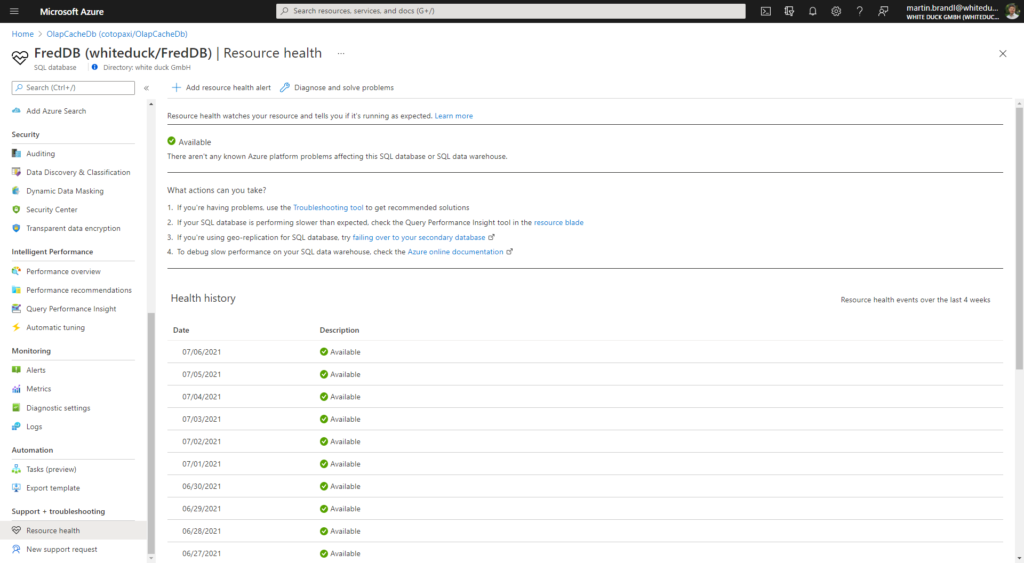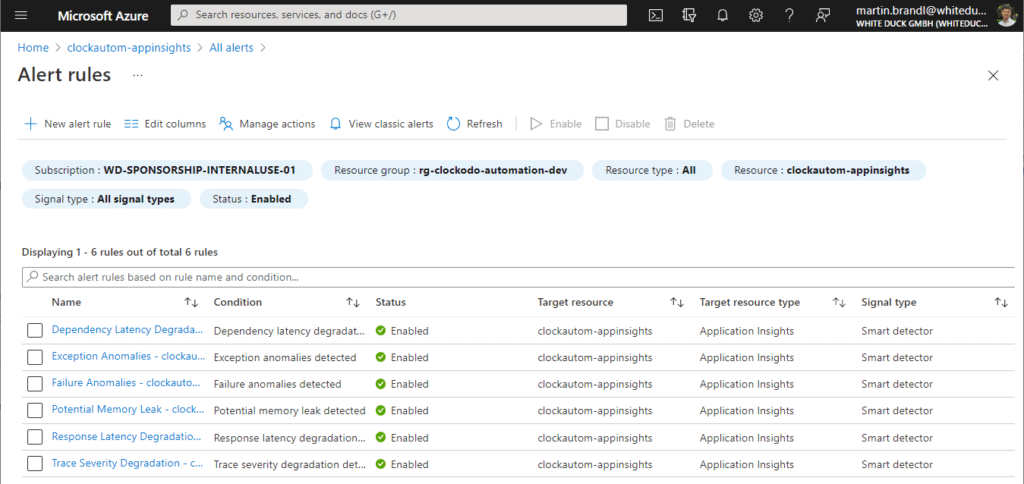Monthly Azure news June 2021
This month as per usual we report about some of the most recent news from the Azure and Cloud native world! Join us and keep reading as there are bunch of interesting updates. Don’t forget to share it with your community.
Public Preview: Azure Functions with identity-based connections
The Azure Functions update provides the possibility to use some extensions (triggers and bindings) without using a connection string but with an identity. This will greatly reduce the need for secrets in many Functions projects.
For hosted Azure Functions, the identity-based connections use a system-assigned managed identity to which you can assign Azure roles to grant access to a particular service.
At the moment, identity-based connections are supported by the following extensions:
- Azure Blob
- Azure Queue
- Azure Event Hubs
- Azure Service Bus
In addition, the storage connections used by the runtime may also be configured using an identity-based connection.
In order to use the new feature, you will need the latest Azure SDKs for each service (Version 5.0.0-beta2 or later).
General availability: Azure Defender for open-source relational databases
Azure Defender provides security alerts and advanced threat protection so that you can identify and respond to potential threats as they occur. Furthermore, it detects anomalous activities indicating potentially harmful attempts to access or exploit databases. Azure Defender is now generally available for the following open-source relational databases:
- Azure Database for MariaDB
- Azure Database for PostgreSQL
- Azure Database for MySQL
General availability: Resource Health for Azure SQL Database and Azure SQL Managed Instance
Resource Health for Azure SQL Database and Azure SQL Managed Instance can help you diagnose and get support if an Azure problem is affecting your SQL resources. Furthermore, it informs you of the current and past state of your resources and provides historical information including downtime reasons and planned maintenances.

Learn more.
General availability: Static website hosting for Azure Data Lake Storage
Static website hosting for Azure Data Lake Storage allows you to serve static content like HTML, CSS, or JavaScript directly from your Azure Data Lake. This is a great option in cases where you want to view content from a browser but don’t require a web server to render content.
Public preview: Alerts-based smart detection for Application Insights
Smart detection performs proactive analysis of the telemetry data that apps send to Application Insight. It automatically alerts you if there is a sudden rise in failure rates or an abnormal pattern in performance.
You can migrate your Application Insights smart detection to alerts to take advantage of the full capabilities of Azure Monitor alerts including action groups and rules. The migration can be done using the Azure Portal, using the Azure CLI, or using Azure Resource Manager templates.

General availability: Maintenance control for Virtual Machine Scale Sets
Maintenance control lets you decide when to apply updates to operating system disks in your VM scale sets more easily and predictably. It allows you to define a maintenance window through which Azure automatically deploys OS images to your VM scale set instances.
Use this feature to ensure that your instances are updated only during the maintenance window of your choice.
General availability: Azure Blob index tags
Blob index tags is a managed secondary index allowing you to store multi-dimensional metadata to describe your Azure Blob data objects. You can use Azure Blob index to quickly find and filter specific objects in a blob container without maintaining a secondary query system (lookup table).
You can populate the blob index with key-value tag attributes either during upload or on existing data.
Furthermore, you can use these indexes as a rule filter in your lifecycle management to move data to cooler tiers or delete blobs if they match the specified tags criteria.

Learn more.
General availability: Azure IoT Edge for Linux
Azure IoT Edge for Linux on Windows enables containerized Linux workloads to run side-by-side with Windows applications in Windows IoT deployments. It is running a pre-installed Linux virtual machine on a Windows device. Linux and Windows workloads run alongside each other can communicate seamlessly.

General availability: Network File System (NFS) 3.0 protocol support for Azure Blob Storage
Azure Blob storage now supports the Network File System (NFS) 3.0 protocol. This enables clients to mount a Azure Blob container into the Linux file system. With the multi-protocol support, both cloud native and legacy applications can use a single storage platform.
Data that is stored in your storage account with NFS support is charged at the same rate as the Blob storage capacity charges, with no minimum capacity provisioning required.
NFS 3.0 protocol support requires blobs to be organized using hierarchical namespace. In addition, all the data in your storage account will be stored as block blobs.